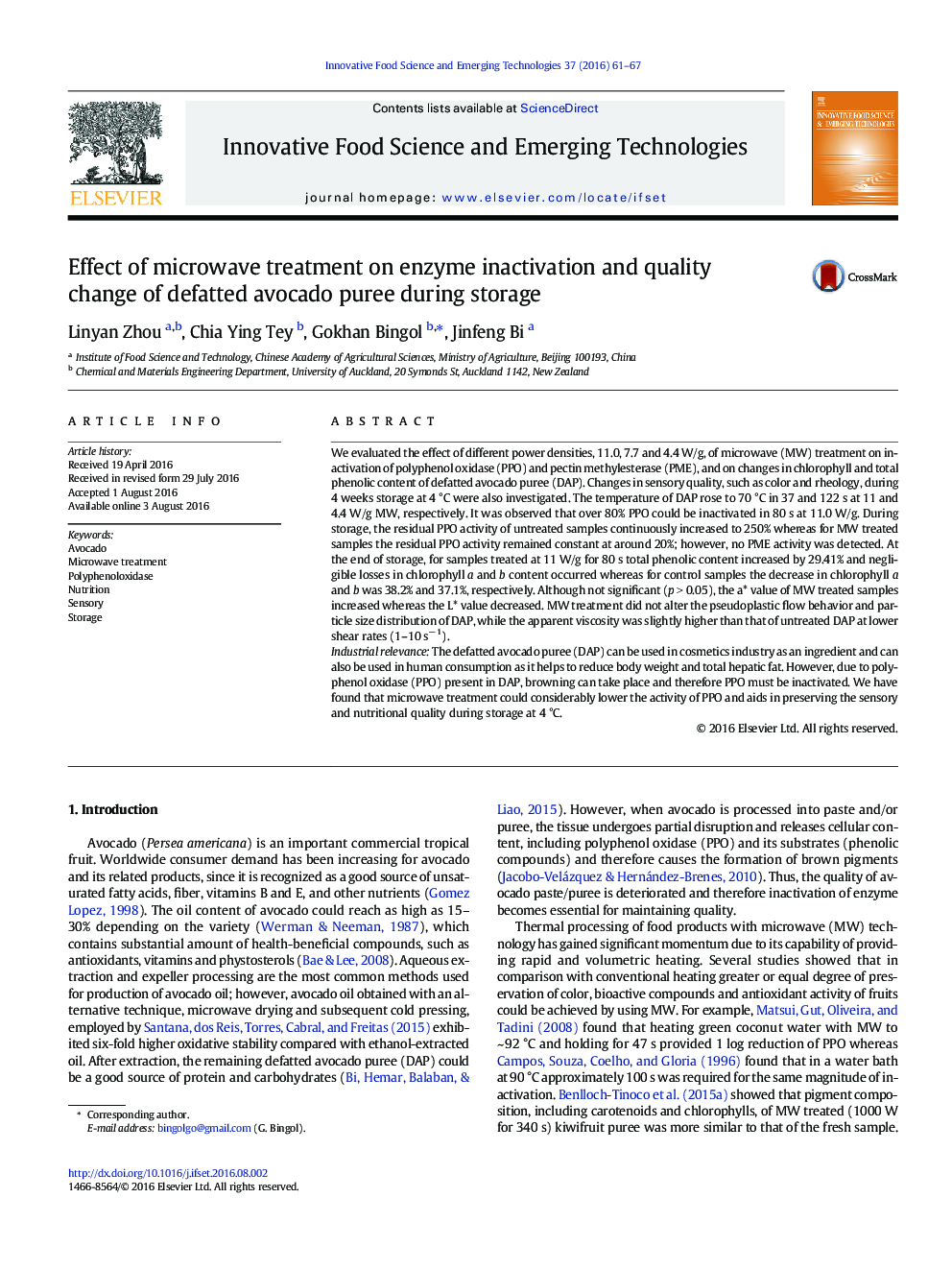| Article ID | Journal | Published Year | Pages | File Type |
|---|---|---|---|---|
| 2086230 | Innovative Food Science & Emerging Technologies | 2016 | 7 Pages |
•PPO activity can significantly be lowered by MW treatment.•After 4 weeks of storage (4 °C) MW treated samples had higher total phenolic and Chlorophyll a and b content than control.•At low shear rates, apparent viscosity of MW treated samples was higher than control and could provide better mouthfeel.
We evaluated the effect of different power densities, 11.0, 7.7 and 4.4 W/g, of microwave (MW) treatment on inactivation of polyphenol oxidase (PPO) and pectin methylesterase (PME), and on changes in chlorophyll and total phenolic content of defatted avocado puree (DAP). Changes in sensory quality, such as color and rheology, during 4 weeks storage at 4 °C were also investigated. The temperature of DAP rose to 70 °C in 37 and 122 s at 11 and 4.4 W/g MW, respectively. It was observed that over 80% PPO could be inactivated in 80 s at 11.0 W/g. During storage, the residual PPO activity of untreated samples continuously increased to 250% whereas for MW treated samples the residual PPO activity remained constant at around 20%; however, no PME activity was detected. At the end of storage, for samples treated at 11 W/g for 80 s total phenolic content increased by 29.41% and negligible losses in chlorophyll a and b content occurred whereas for control samples the decrease in chlorophyll a and b was 38.2% and 37.1%, respectively. Although not significant (p > 0.05), the a* value of MW treated samples increased whereas the L* value decreased. MW treatment did not alter the pseudoplastic flow behavior and particle size distribution of DAP, while the apparent viscosity was slightly higher than that of untreated DAP at lower shear rates (1–10 s− 1).Industrial relevanceThe defatted avocado puree (DAP) can be used in cosmetics industry as an ingredient and can also be used in human consumption as it helps to reduce body weight and total hepatic fat. However, due to polyphenol oxidase (PPO) present in DAP, browning can take place and therefore PPO must be inactivated. We have found that microwave treatment could considerably lower the activity of PPO and aids in preserving the sensory and nutritional quality during storage at 4 °C.
